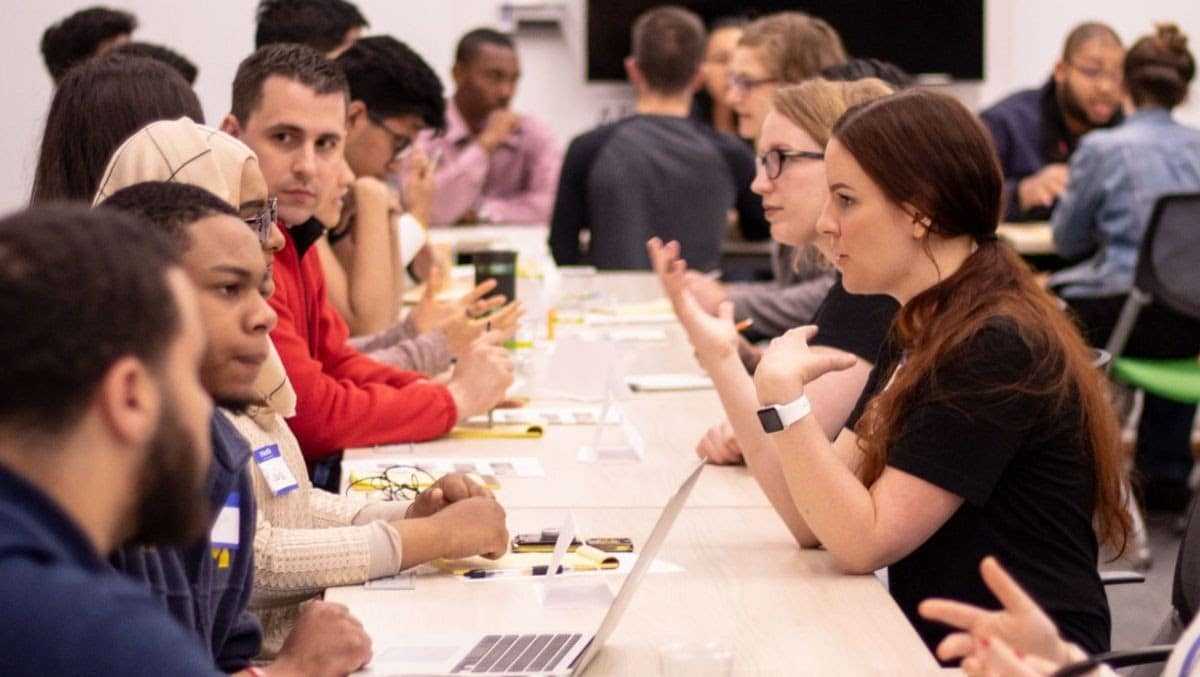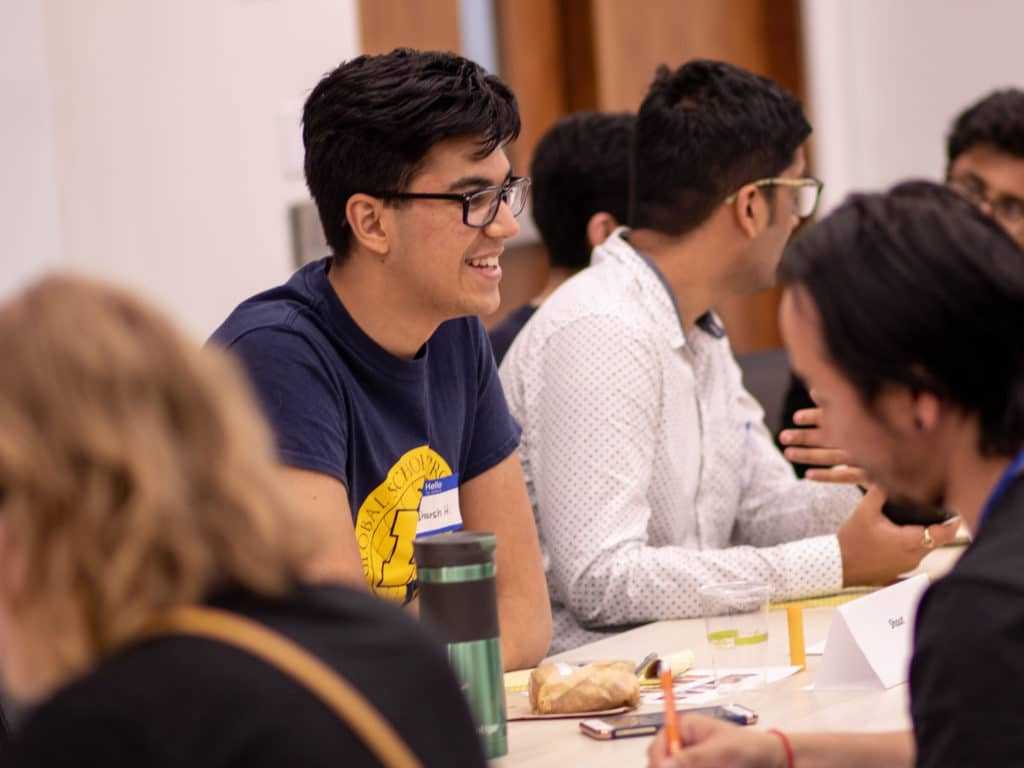leadership, university of michigan
Optimize: The Student-Led Impact Venture Incubator Grows Up
By Laura Cowan
Laura K. Cowan is a tech, business, and wellness journalist and fantasy author whose work has focused on promoting sustainability initiatives and helping individuals find a sense of connection with the natural world.
In 2013, a group of University of Michigan students wanted to support each other's startup ventures. Some were tech focused, others social impact-oriented startups that needed time and financial backing to give them a chance to grow. "We spent time taking tests, writing papers, but hadn't tried our hand at solving problems," says Jeff Pituch, Associate Director for Social Innovation at Optimize. "We started Optimize as a program for early-stage ventures."
From 2011-2015, Pituch says the Optimize program was evolving to fill the entrepreneurship gap at the University of Michigan. Back then, there wasn't much of a culture for startups. "We wanted to work on projects outside 1 term," Pituch says. "Ten years ago, there were barely any resources to support undergrads." Then, there was an explosion in computer science and user experience students applying to the University of Michigan, rapidly outpacing the university's ability to keep up with demand. Still, there wasn't enough direct attention on how to apply these newly learned skills as entrepreneurs. "Students were seeking advice, wanting to gain access to small amounts of capital," Pituch says. "We're not expecting returns but wanting it to be an educational experience outside gaining knowledge in an academic subject."
Optimize has made sure that over the last 3 years, 50% of their founders are women and 50% minorities, so they're not just recruiting the 1%.
The Optimize program allows students to pursue startup ventures for longer periods of time by helping them pay living expenses to give them space to work on building their business. Pituch says they are cognizant that even as the University of Michigan has become the top-rated ecosystem for student entrepreneurs in the United States, the barriers to tech are even higher than before, especially for minorities. "The university is not a very diverse place," Pituch says. "In the last 10 years it has become much more expensive." As a response to this shifting dynamic, Optimize has made sure that over the last 3 years, 50% of their founders are women and 50% minorities, so they're not just recruiting the 1%.
"We're working with students from community colleges who want to transfer," Pituch says. "We're hoping to make inroads into more community colleges around the state, and to help make the university an even more welcoming and inclusive space.... We do intentional recruitment in places where people don't necessarily see themselves as startup folks. We went to the Black Student Union and asked them what they would want. We want to work with people who historically didn't have a seat at the table."
Pituch says mentors can host a webinar on their own time, or donate other resources besides time and money.
Over the first few years of its existence, Optimize evolved and was absorbed into the U-M school of Literature, Science & The Arts. Students still do recruiting and organizing, and bring in tech-industry mentors to help students get started. "Bringing in mentors also means people who tend to have the time in their careers, who might be older, whiter," Pituch says. "Which is great, but we try to create opportunities for engagement for people to mentor who might not have the flexibility of a retirement schedule. Even if you have 1 hour per month, we can work with that."
Optimize has a website and Facebook page with event information, including summer Tuesday dinners, and the Optimize Summer Fellowship program: $300k to student projects with the most promise, who can execute their vision. "We offer a self-directed internship for 3 months," Pituch says. "Even if you're just curious what students are working on, we'd love to have you as a mentor. It's super inclusive. This is an exciting place to be working with students." For example, Pituch says mentors can host a webinar on their own time, or donate other resources besides time and money. If you're interested in working with the Optimize program, you can reach out through their general mentorship page to speak with the mentorship manager.
We will be speaking with several student ventures launched through Optimize in the near future. Stay tuned.
1 student entrepreneurship ecosystem, ann arbor news, ann arbor tech, jeff pituch, optimize, social impact startups, student ventures, tech startups, university of michigan


